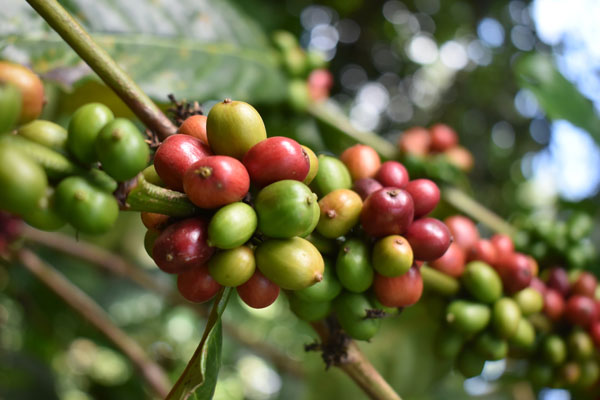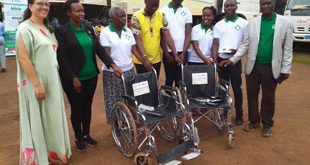
Kampala, Uganda | THE INDEPENDENT | Uganda’s coffee exports face a tough huddle following demands that exports to the European Union come from registered farmers, the Uganda Coffee Development Authority (UCDA) has said.
This will not only be a challenge to the authorities to have this met due to the nature of the country’s chain but also to the farmers, the majority of whom may not immediately meet the requirements for registration.
In addition to various sanitary requirements, UCDA says the EU has asked Uganda’s coffee subsector to have everyone along the value chain registered which would enable the market authorities to monitor the standards of the product.
Amelia Atukunda, Manager, of Monitoring and Evaluation at the Uganda Coffee Development Authority said registration of all farmers has to be done by December next year, because the deadline given by the EU is January 2025 for all the coffee exports to be from registered farmers.
She termed this a matter of urgency because the EU takes most of Uganda’s coffee and the country can only abide by the market demands since even getting alternatives in the short run might be impossible.
Atukunda was speaking at a dialogue in Kampala, called to discuss and give recommendations on the likely effects of the EU-Africa trade and investment policies on coffee value chains in Africa.
Other developments in recent times include the signing of the economic partnership agreement between the EU and Kenya which experts have since criticized as it is likely to disrupt the East African integration process.
The dialogue was organised by the regional trade information NGO, SEATINI Uganda.
During the discussions, the issue of traceability featured prominently with coffee dealers and legislators blaming the government for delaying it.
Atukunda said the EU wants this also implemented as it will help the region tell whether the coffee imported from Uganda does not violate values like environmental and human rights.
She explained that everyone along the value chain will have to show where the coffee they have originated from, an example being that it must have come from an area that was formerly not a forest.
The issues of registration and traceability had been discussed and even put in the National Coffee Act 2021, long before the EU directive.
Jackie Arinda, the chief executive of Jada Coffee wondered why up to now there is no traceability policy, explaining how hard it is to even try to find out from a farmer a few details about their coffee.
She said some have even turned her away for asking questions which makes them suspicious of her intentions.
“They even ask you whether you are a government spy and others even change their mind about selling their product to you,” she said.
Richard Okot Okello, Assistant Commissioner of External Trade at the Ministry of Trade, Industry, and Cooperatives, blamed the cabinet for delaying putting in place the regulations operationalizing the Act.
“We have been waiting since 2000 to have the regulations in place. But I don’t know why the cabinet has up to now not drawn the regulations,” he said.
Silas Aogon, the MP Kumi Municipality said that this is only part of the many policies in place that have not been implemented by the government.
“What happened, for example, to Agricultural Zoning? Why is the Soroti Fruit Factory not functioning?” he wondered.
SEATINI Uganda Chief Executive Officer, Jane Nalunga expressed concern at the developments in the major trading partners for Africa, especially the EU and the US.
She wondered whether the Europeans would not be influenced by the decision of the US to ban African countries including Uganda from trading under the AGOA initiative.
On the issue of traceability and registration, which dominated the dialogue, Nalunga expressed concern that Uganda might not meet the one-year deadline.
Okot Okello also launched the report by German NGO, Brot für die Welt (Bread for the World) following a study commissioned by Seatini, on the “Implications of the EU-Africa trade and investment policies on coffee value chains in East Africa.”
The report issued in September 2023 says that the EU-EAC Economic Partnership Agreement is the most significant Free Trade Agreement that, if implemented, would provide duty-free, quota-free market access to the EU.
The report recommends protection of the EAC Policy Space, hailing the refusal by some countries to sign to the EPA.
It also calls for increased production and productivity at all levels, participation more in the global value chains, as well as remove internal barriers to trade.
****
URN
 The Independent Uganda: You get the Truth we Pay the Price
The Independent Uganda: You get the Truth we Pay the Price



The Government should first edicate farmers on how to keep the quality of coffee.